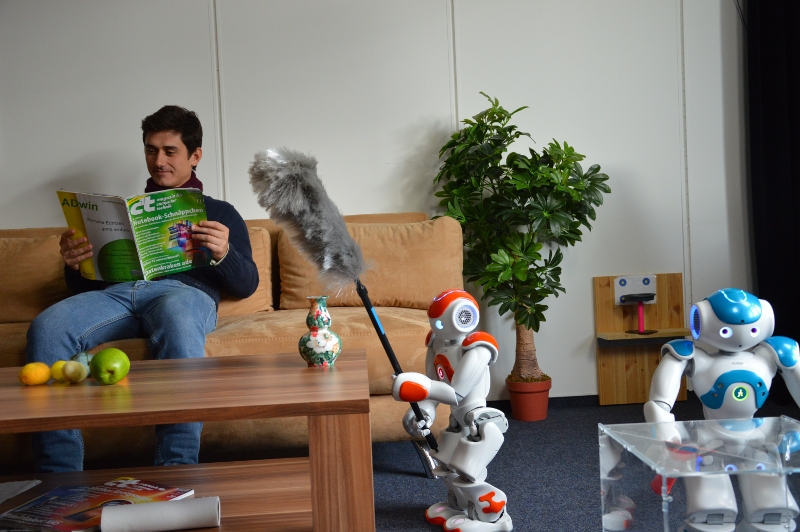Persons participating in the project
Leading Investigator:
Prof. Dr. Stefan Wermter
Associates:
Dr, Marcello Borghetti,
Dr. Sven Magg,
Dr. Cornelius Weber.
Description
|
Learning is an important issue in robotics, since robots have to accomplish tasks autonomously. For example, object detection in 3D scenes and 3D object labeling
are of growing interest as they pose many challenges to perform the correct recognition, since objects can appear in the scene with different sizes, shapes and colours, depending
on the orientation of the sensor in the instant of acquisition and also depending on the illumination conditions.
Also, mobile robot navigation techniques are of utmost importance in domestic tasks since the robots have to explore the environments to achieve their objectives.
Learning models can be very effective to help robots acquire knowledge about the environment, for example to avoid obstacles. The use of
a special neural network called Growing Neural Gas Network (GNG) is interesting, as it relates a position in the map with specific neurons of the network.
|
Depending on the size of the environment the use of a single robot can represent a significant delay, as the robot has to learn about the whole map or about all objects in the scene
and also perform the task. The use of multiple robots can decrease the time required to accomplish a task, as each robot would not need to know the whole scene.
On the other hand, as the knowledge acquired by each robot is partial, the robots can take inefficient decisions. For example, two or more robots can decide
to navigate to the same place or each robot can choose a distant place to clean, which would better be served by another robot.
To solve this problem, the robots should create strategies to distribute the workload in the team, using models to estimate the state of the other robots.
This strategy allows robots to take decisions rationally. Complementary, the partial knowledge in each robot can be combined in some way, as the robots
might transfer the knowledge between them.
Summarizing, the CoRob Project will address the following main points:
1) Understanding the environment: using neural networks to learn the map and to recognize objects from a single robot's sensors.
2) Robot cooperation: the robot team will distribute itself optimally to combine partial knowledge and to jointly accomplish tasks such as cleaning.
|
